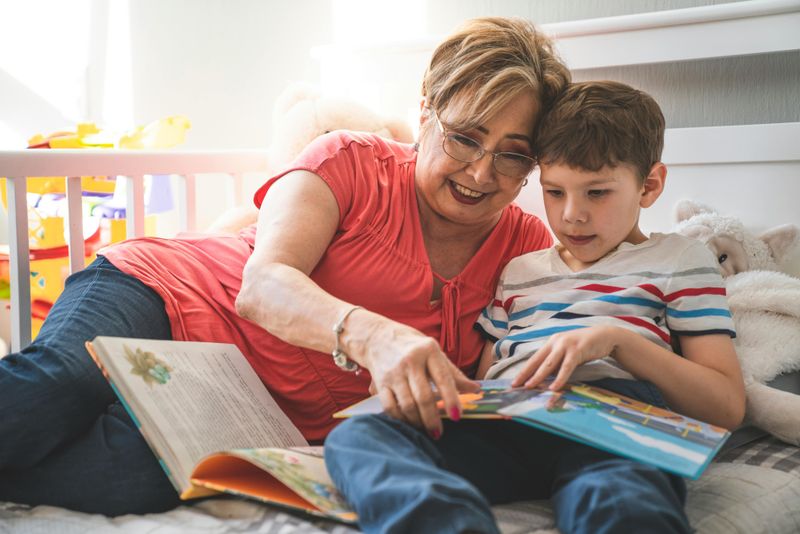15 Unspoken Ways Parents Hurt Their Adult Kids Without Meaning To

Even the most loving and well-meaning parents can unintentionally hurt their adult children. The shift from a dependent child-parent relationship to one between two grown adults isn’t always smooth, and old habits die hard. What once came from a place of protection or guidance can now feel intrusive, invalidating, or even controlling.
1. Offering Constant Unsolicited Advice

Giving tips and guidance without being asked might feel helpful, but it often comes across as distrust. Adult children usually want to feel like their parents believe in their ability to handle life’s challenges.
Instead of inspiring confidence, constant suggestions can subtly signal that they’re incapable or uninformed. Over time, this can chip away at their self-esteem and lead to resentment or emotional distancing.
The best approach? Wait until they ask. When advice is sought rather than forced, it’s more likely to be appreciated—and even followed.
2. Criticizing Their Life Choices

Making negative remarks about an adult child’s career, relationships, or parenting style—no matter how small—can be deeply wounding. These critiques often feel like personal attacks rather than constructive input.
Even comments masked as concern may come off as judgment or disappointment. While parents may believe they’re offering a better perspective, adult kids typically just hear disapproval.
Support doesn’t always mean agreement, but it does require respect. Affirming their autonomy and trusting their path builds stronger bonds than picking apart their decisions.
3. Treating Them Like They’re Still Teenagers

Many parents fall into the habit of talking to their adult children the same way they did when they were younger. This can include being overly directive, suspicious, or dismissive of their independence.
It’s frustrating for grown kids to be seen as irresponsible or incapable, especially when they’ve long been making their own decisions. This outdated dynamic stunts the relationship and can lead to avoidance.
To truly support their growth, parents must evolve their roles—from authority figure to equal partner in conversation and respect.
4. Guilt-Tripping for Time or Attention

Emotional remarks like “I guess you’re too busy for your family now” may seem harmless, but they sting more than parents realize. These statements often evoke guilt rather than genuine connection.
Instead of encouraging closeness, guilt trips create emotional pressure. Adult kids might pull away to protect themselves from feeling manipulated or overwhelmed.
It’s more productive to express a sincere desire for connection—without strings attached. Saying, “I miss you and would love to catch up” fosters warmth rather than resentment.
5. Making Backhanded Compliments

Comments like “You actually look nice today” or “I’m surprised you got that promotion” sound like praise, but they land like subtle jabs. These remarks mix approval with insult.
Over time, adult children may feel like they’re never quite good enough. Even if unintentional, this type of comment undermines self-worth and makes them wary of sharing achievements or changes.
Choosing words thoughtfully and celebrating successes without qualifiers shows love and pride more effectively than passive-aggressive praise ever could.
6. Overstepping Boundaries in Grandparenting

Parents often feel they know best when it comes to raising children—especially their grandchildren. But ignoring their adult child’s parenting rules, schedules, or philosophies can cause serious tension.
Even small acts, like sneaking candy or overriding screen time limits, can feel disrespectful. It suggests the grandparent’s way is superior and undermines the authority of the parents.
Respecting boundaries and asking before acting helps maintain trust and strengthens both the parent-child and grandparent-grandchild relationships.
7. Expecting Them to Mediate Family Drama

Dragging adult children into marital conflicts, sibling rivalries, or other family disputes places them in an unfair and exhausting position. It forces them to pick sides or absorb emotional stress they didn’t ask for.
While venting might offer temporary relief to the parent, it often puts the child in a painful and awkward situation. This kind of pressure can create lasting discomfort.
Instead, turning to a therapist, close friend, or spouse for support can preserve the peace and protect the parent-child bond.
8. Comparing Them to Other Siblings or Peers

Statements like “Your brother has already bought a house” or “So-and-so’s daughter just got promoted” may seem casual, but they sting. Comparisons erode confidence and create unnecessary competition.
Even when meant as motivation, they often come off as disapproval or favoritism. Adult children may internalize these comments as not being enough, no matter their achievements.
Recognizing and affirming each child’s unique path, without holding up others as the gold standard, nurtures connection rather than division.
9. Projecting Old Narratives Onto Them

Parents sometimes cling to childhood labels—like “the shy one,” “the troublemaker,” or “the lazy one”—long after their kids have outgrown them. These outdated identities can feel suffocating and unfair.
When adult children hear the same narratives repeated, it can keep them stuck emotionally, even if they’ve worked hard to evolve. It denies them credit for growth and self-awareness.
Updating your image of your child to reflect who they are today is a powerful form of respect and acknowledgment.
10. Withholding Emotional Support in Tough Times

When adult children open up about struggles and are met with “It could be worse” or “You’ll be fine,” it can feel dismissive. These responses, while well-meaning, invalidate real pain.
What adult kids often need is empathy, not solutions. They want to be heard, not rushed past their emotions.
Offering a listening ear and validating their feelings—without minimizing—can strengthen your relationship and show them you’re still a safe space.
11. Relying on Them for Emotional Support

Turning to adult children for ongoing emotional support or using them as a stand-in for a partner or therapist creates an unbalanced relationship. It places emotional weight where it doesn’t belong.
While vulnerability is healthy, expecting your child to absorb all your worries or emotional needs can be overwhelming. It blurs roles and boundaries.
Parents should aim to share appropriately while maintaining emotional independence, ensuring the child’s role remains that of a loved one—not a caretaker.
12. Judging Their Financial Choices

Commenting on how they spend money—whether on travel, clothes, or housing—can feel intrusive. Even subtle remarks can carry heavy judgment.
While parents may think they’re helping their child make better choices, unsolicited opinions often spark shame or defensiveness. Financial decisions are deeply personal, and so is the journey that shapes them.
Support is best offered only when asked. Trusting that your child knows what they can afford (or is willing to learn from mistakes) promotes maturity, not resentment.
13. Making Everything About Themselves

Shifting every conversation back to your own experiences, opinions, or feelings can make adult children feel invisible. It signals that their stories, struggles, or successes aren’t as important.
When a child opens up, they want to be seen—not redirected. Constantly inserting yourself into their narrative may feel like an attempt to relate, but it often misses the mark.
Practicing active listening and centering their voice in the conversation builds mutual respect and deeper emotional connection.
14. Failing to Apologize for Past Mistakes

Parents aren’t perfect, but many struggle to admit when they were wrong. Avoiding apologies for past hurt—especially from childhood—leaves wounds unhealed.
Adult children may carry unresolved pain that affects their current relationship with their parents. When apologies are absent, it can feel like denial or dismissal of that pain.
A sincere, heartfelt “I’m sorry” can open the door to healing and reconciliation, showing that growth and humility exist at any age.
15. Assuming Proximity Equals Relationship

Just because you live nearby or see each other often doesn’t automatically mean the relationship is thriving. Emotional connection requires effort, not just shared geography.
Many parents assume that being present physically is enough, but deep bonds are built through meaningful conversation, respect, and emotional support.
Taking time to ask real questions, listen, and understand your adult child’s world is what transforms proximity into true closeness.

Comments
Loading…